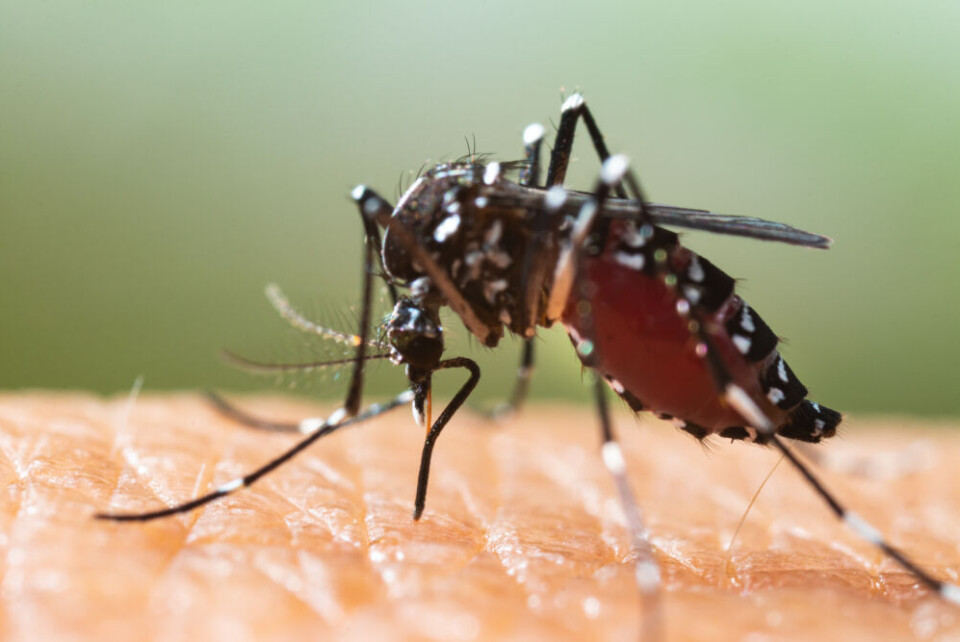-
La Voie Bleue: European Cycle Route of the Year is in France
700km bike path linking Luxembourg and Lyon has been crowned winner of the 2026 title
-
Before and after: Garonne river floods in south-west France
Satellite images show extent of flooding from back-to-back storms in February
-
Home insurance increases expected in France after floods
Compensation costs for the recent storms and flooding across the west and south-west is estimated to be in the billions of euros
Tiger mosquitoes now in Normandy, last region of France to escape them
The tiny insects were first detected in France in 2004

Tiger mosquitoes have been confirmed in Normandy, which had - until now - been the last region in mainland France to remain unaffected by the insects.
The mosquitoes - which are recognisable by their black and white striped body - are now found nationwide, the Agence Régionale de Santé (ARS) of Normandy stated on March 20. The insect was detected in the Seine-Maritime department during an ARS ground inspection in September 2023.
“When the mosquito is spotted or a case of arbovirosis [viruses spread by airborne insects] is declared in the area, graduated management measures adapted to the local context will be implemented,” said the ARS in a press release. This includes destroying nests and applying insecticide treatments.
Tiger mosquitoes can spread serious viruses, such as dengue fever, Zika, and chikungunya.
But the ARS said that “no local spread of these viruses linked to these mosquitoes has been seen in Normandy”.
Dengue spread
Dengue fever has been seen more frequently in France and in the north, however, with the first ‘native’ case of the illness confirmed in the Paris area in October 2023.
A ‘native’ case means that the patient contracted the illness on French soil and had not recently travelled to an area typically known for dengue, such as Southeast Asia or the Caribbean.
Read more: 1,347 cases of dengue fever registered in France since May 1
Read more: Increase in tiger mosquitoes in France leads to more cases of dengue
Tiger mosquitoes were first detected in France in 2004, and have spread across the country due to rising temperatures and climate change.
Despite their ‘big cat’ name, they are smaller than ‘regular’ mosquitoes (less than 0.5cm in length). They are also silent, and tend to be more active during the day.
How to reduce tiger mosquitoes
Health authority Anses suggests the following tips to help avoid the insect:
- Regularly empty or remove any stagnant water, including the cups under flower pots, vases, etc., or fill them with sand in order to maintain humidity without stagnant water
- Store buckets, gardening equipment, toys, and other containers away from the rain
- Cover water collection containers with mosquito netting or fabric
- Clean gutters to allow proper drainage
SPF says that people should consult their doctor as soon as possible if they notice any symptoms after receiving mosquito bites, or if returning to France from an at-risk country.
Read also
Alarm over massive rise of mosquito-spread diseases caught in France
Tiger mosquitoes: How you can help stop their spread in France
























